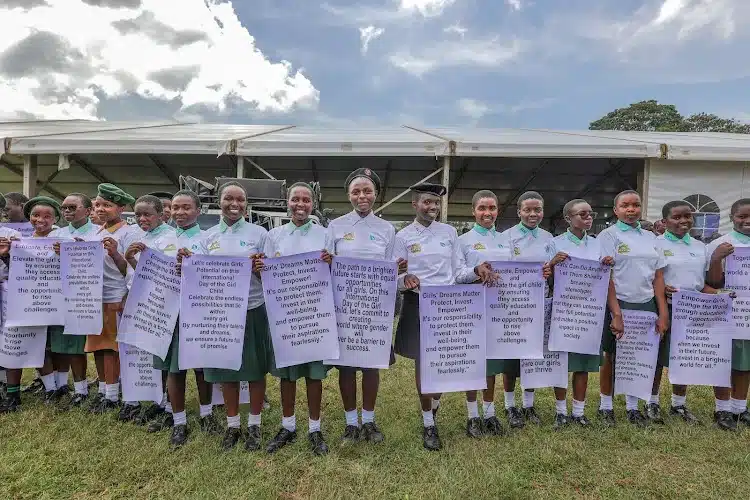
Girl Day is celebrated every year on October 11 as an opportunity to raise awareness about the unique challenges faced by girls around the world, especially in Africa, and the importance of providing them with quality education. In this article, we explore the Day’s importance in the context of education in Africa, the challenges faced by girls, and initiatives aimed at improving their access to education.

Education is a human right and the basis of personal and social development. However, African girls often face many barriers that prevent them from accessing education. These issues may be cultural, economic or political, but they all contribute to gender inequality in education. Girls’ Day provides an opportunity to address these issues and work for gender equality in education.
One of the most important problems faced by girls in Africa is early marriage and pregnancy. Cultural norms in many African societies dictate that girls should marry at a young age, often forcing them to drop out of school. Additionally, the lack of comprehensive sex education can lead to unintended pregnancies, further hindering their educational progress. Initiatives that raise awareness about the importance of delaying marriage and pregnancy until after completing their education are crucial.
Another major obstacle is poverty. Many families in Africa struggle to meet basic needs, and education can be costly due to expenses like uniforms, books, and transportation. Girls are often the first to be withdrawn from school when a family faces financial constraints. To address this issue, scholarships, school donation programs, and affordable school supplies can help reduce the financial burden on families and support girls’ education.
Additionally, especially in rural areas, the distance to school will prevent girls from going to school. Unsafe travel and long distances can put them at risk. Building more schools and providing transportation closer to communities could help solve this problem. In many African countries, boys are expected to be encouraged in education and girls are expected to work within the family. It is important to change these attitudes and promote the value of girls’ education. Social awareness programs and inclusive education programs that challenge stereotypes can play a key role.
Child labor is another problem affecting girls. Many girls have to work to support their families, leaving little time for education. Government policies and international organizations can work to eliminate child labor and ensure girls have the opportunity to go to school.
Unfortunately, conflicts and conflict in many parts of Africa have disrupted education and made it difficult for girls to access education. Efforts to build peace and improve education in post-conflict regions are critical to providing girls with a stable and safe learning environment.
One of the best ways to improve educational opportunities for girls in Africa is to support and train female teachers. Many female teachers can act as role models and make it easier for girls to stay in school by creating an inclusive environment.
Investing in girls’ education in Africa has many long-term benefits. It can break the cycle of poverty, improve women’s health, and promote gender equality. Girls who receive an education are more likely to make informed decisions about their health, family, and career. They are also more likely to become financially independent and contribute to their communities and economies.

Several organizations, both local and international, are actively working to improve the education of girls in Africa. Plan International, UNICEF, and the Malala Fund are just a few examples. They provide resources, advocacy, and support to ensure that girls have equal access to quality education.
In conclusion, Girl Child Day serves as a reminder of the challenges faced by girls in Africa when it comes to education. The challenges they face are many and include cultural barriers, financial constraints, and gender stereotypes. But through a combination of advocacy, policy change, and organizational efforts, progress can be made to ensure that girls receive a quality education just like boys. Investing in girls’ education is not only a human rights issue but also a key driver of economic growth in Africa. This is something worth celebrating and encouraging on Girls’ Day and every day.





